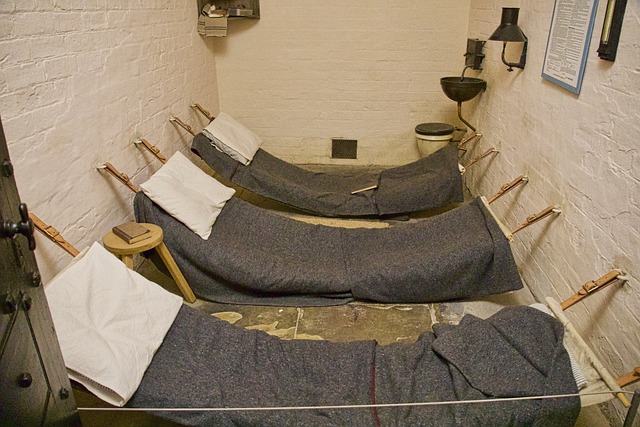Youth DUI Prevention Programs utilize workshops, peer mentoring, and education to empower teens against drunk driving. Support groups foster community, recovery, and emotional well-being through shared experiences. Effective group sessions leverage structured strategies for open communication, trust, and positive behavior change. Continuous support ensures long-term recovery success within the Youth DUI Prevention Programs' community-focused approach.
Support Groups for Recovery Among Youth: A Pathway to Overcoming DUI Challenges
Youth DUI (drunk driving under age 21) prevention programs play a pivotal role in shaping safer futures. Beyond legal consequences, structured support groups offer young individuals a powerful tool for recovery. This article explores how these groups build community and foster peer connections, crucial elements in the healing process. We delve into strategies for effective sessions and emphasize the importance of long-term support, ensuring youth on the path to recovery remain steadfast in their progress.
- Understanding Youth DUI Prevention's Role
- Building Community Through Support Groups
- The Power of Peer Connection in Recovery
- Strategies for Effective Group Sessions
- Long-Term Success and Continued Support
Understanding Youth DUI Prevention's Role

Youth DUI prevention programs play a vital role in addressing a pressing issue that impacts not only the young individuals involved but also their families and communities at large. These programs are designed to educate, guide, and support teenagers to make responsible decisions regarding alcohol consumption and driving. By targeting this demographic, Youth DUI Prevention Programs aim to reduce the devastating consequences of underage drinking and impaired driving.
Through interactive workshops, peer-led discussions, and educational resources, these initiatives foster an environment where young people can openly talk about the dangers and legal repercussions of drunk driving. They also empower teens with strategies to resist peer pressure and make safer choices. This proactive approach to Youth DUI Prevention not only promises a brighter future for individuals but also contributes significantly to road safety across communities.
Building Community Through Support Groups

Support groups play a pivotal role in fostering community and recovery for individuals, especially youth involved in or at risk of Youth DUI Prevention Programs. These groups offer a safe and non-judgmental space where participants can share their experiences, struggles, and victories. By connecting with peers facing similar challenges, members build a sense of belonging and understanding, which is essential for emotional well-being.
Through regular meetings, support group participants learn valuable coping strategies, gain insights from one another’s journeys, and offer encouragement. This peer-to-peer approach empowers individuals to take control of their recovery, fostering resilience and self-efficacy. Moreover, these groups create a supportive network that extends beyond the meeting rooms, enabling members to navigate challenges together and maintain sobriety in a community that cares.
The Power of Peer Connection in Recovery

In the journey towards recovery, peer connections can be a powerful tool that significantly enhances the process. Support groups like Recovery Together offer a unique environment where individuals with shared experiences and struggles connect, fostering a sense of belonging and understanding. This dynamic is particularly beneficial for young people navigating the complexities of addiction or dealing with the aftermath of impulsive decisions, such as those involved in Youth DUI Prevention Programs.
In these peer-led gatherings, members support each other through emotional milestones, celebrate successes, and offer guidance during challenges. The power of these connections lies in the shared struggle—a bond that transcends external judgments or societal norms. This camaraderie can be a game-changer for young adults, encouraging open communication, promoting accountability, and providing a safe space to express fears, hopes, and dreams without fear of stigma or judgment.
Strategies for Effective Group Sessions

Effective group sessions in Youth DUI Prevention Programs rely on structured strategies to maximize participation and impact. Facilitators should create a safe, supportive environment where members feel comfortable sharing their experiences and emotions openly. Encouraging active listening among participants fosters trust and empathy, allowing for deeper connections and understanding. Using interactive activities, such as role-playing scenarios or group discussions centered around real-life challenges, engages members actively in the learning process.
Additionally, incorporating diverse resources like educational presentations, guest speakers with personal stories, and multimedia elements can enrich the session content. Regularly setting clear goals for each meeting ensures a focused agenda, enabling facilitators to track progress and adapt strategies accordingly. By combining these approaches, group sessions become dynamic and impactful, promoting positive behavior change among participants in Youth DUI Prevention Programs.
Long-Term Success and Continued Support

For many individuals, recovery is a lifelong journey, and ensuring long-term success requires continued support. This is where Youth DUI Prevention Programs’s focus on community extends its benefits—by offering ongoing support groups, participants can maintain their sobriety and develop resilience against potential triggers. These groups provide a safe space to share experiences, gain insights from peers, and learn coping strategies from mentors who understand the challenges of recovery.
The structure and consistency of regular meetings foster accountability and help individuals stay on track. By immersing themselves in a supportive network, members can navigate life’s curveballs while remaining committed to their recovery goals. This comprehensive approach—combining education, mentorship, and peer support—is key to achieving lasting positive outcomes within the Youth DUI Prevention Programs framework.
Support groups, like those facilitated by Youth DUI Prevention programs, play a vital role in fostering community and empowering individuals on their path to recovery. By leveraging peer connections, these groups offer a safe space for open dialogue, shared experiences, and practical strategies, enhancing the long-term success of participants. Incorporating effective group session strategies ensures that everyone involved receives the support they need to thrive. Ultimately, these programs not only promote youth safety but also cultivate resilient individuals equipped to navigate life’s challenges.






